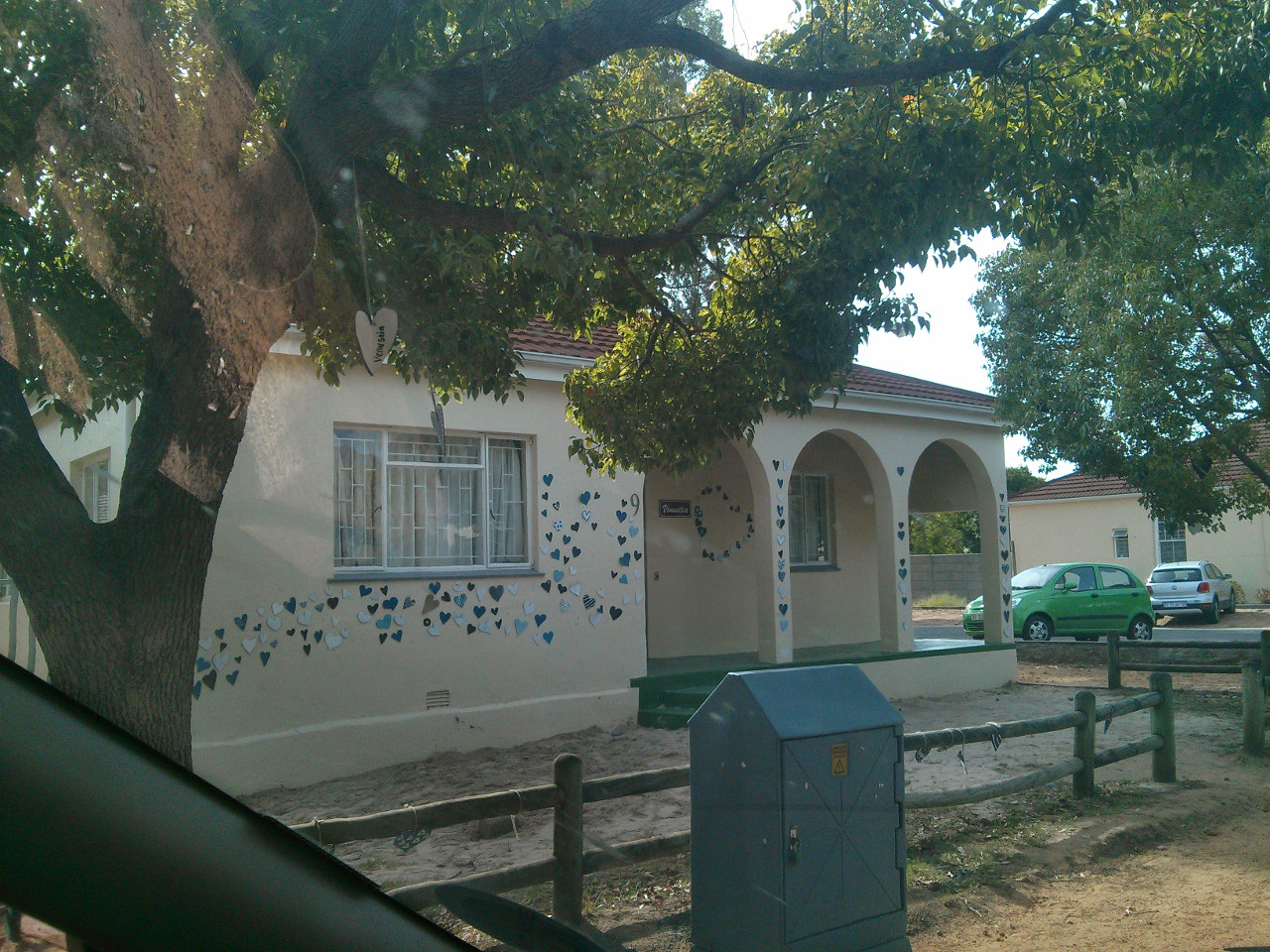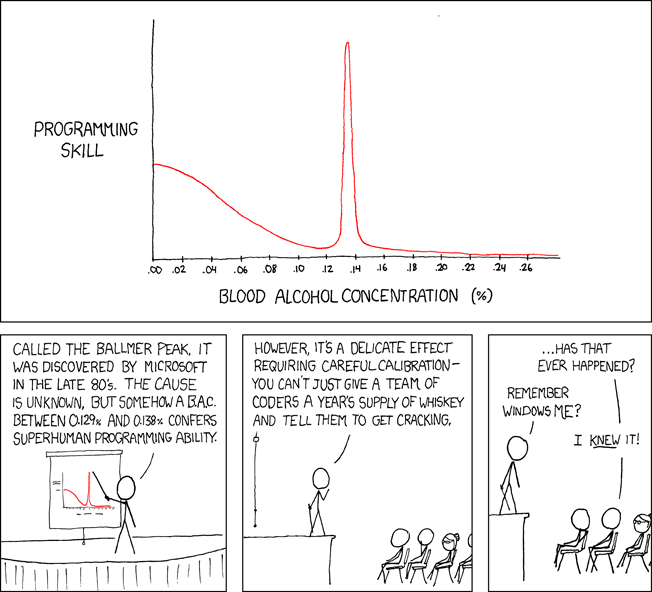I found myself in Stellenbosch this weekend, so I drove by my old student house. Fifteen odd years ago, the house used to go by the name The Far Side. It was usually inhabited by five fairly attractive yet dangerously intelligent male engineering students, who were, quite unexpectedly, also extremely modest. (In those days, prepending “male” to “engineering student” was mostly redundant.)
Well, it seems The Far Side has gone through a little transformation of its own:

Yes, there are little hearts hanging everywhere, and the little hearts have, probably in some kind of fractal frenzy, been arranged to form even larger hearts. In my mind, The Far Side was still exactly as we had left it, except with a new bunch of unexpectedly modest engineering students, thinking, saying and doing things almost like we used to, except for the occasional interjection of ideas that did not yet exist in our time, like “wifi”, “tablet” and “smartphone”.
Initial pattern-matching-driven expectations and consequent surprise aside, this was a physical reminder that even mundane matters can change quite significantly given sufficient time. This is a good thing, although the whole fractal cardiac decoration aspect was perhaps not completely called-for.
On the nerd front:
- I wrote a vxlabs blog post on sending pretty emails with math and syntax highlighted source code, of course using emacs, org-mode and mu4e.
-
After some emacs-lisp tracing through mu4e and gnus, I finally discovered how to activate
format=flowedin the default text/plain emails sent with mu4e, thus enabling reflowing of hard-wrapped emails on receiving (mobile) clients that support this. It occurred to me that the group of nerds affected by this particular behaviour in this particular software setup is extremely small. Read all about it in my github issue report on the matter. - I wrote an osssa blog post on the opening of the new Cape Town Open Data Portal (fantastic!) using non-open Microsoft file format standards (not so great).
Blog reader MrK sent me this sciencedaily article with the great news that there is a small but real chance that beer might protect us from neurodegenerative diseases. In lab tests it was found that xanthohumol, a compound found in hops, could potentially protect brain cells against neurodegenerative diseases such as Alzheimer’s and Parkinson’s. Of course we should be very careful jumping to conclusions based on these types of experiments performed on isolated compounds under lab conditions.
That being said, I do think that careful optimism whilst enjoying beer might be justified. As we all know, the more beer one drinks, the more intelligent one becomes, at least up to a certain optimum:

It seems there’s even a shadowy but very powerful organization built upon this exact principle. They are called The Inebriati:
Thanks for reading this. I hope that you have a great week, and I hope to see you again soon.